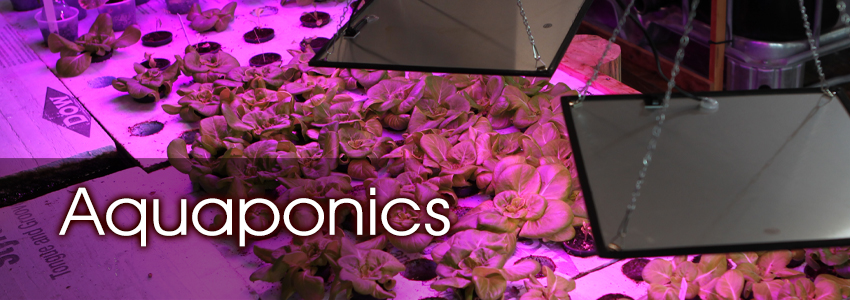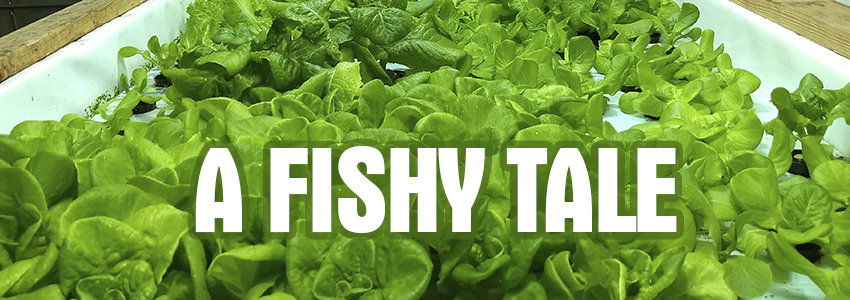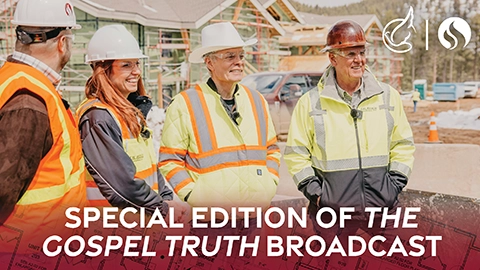
Three years ago, on behalf of the ministry, I started looking for tools—particularly sustainable technologies—that could help people grow food in challenging environments where food might otherwise not easily be grown. At the same time, I wanted to find technologies that could also conserve precious resources such as fresh water, power, and even soil. After some research, I came across the concept of aquaponics, a system that uses live fish and, more specifically, their waste to produce organic, liquid fertilizer for growing plants in an enclosed system. The “fish liquid” passes through grow beds and floating raft beds to nourish and grow plants. In the process, the system filters the water so that it returns to the fish tank—fresh and ready to cycle through again.
I decided that the first step was to create our own aquaponics system in order to gain some practical experience before trying to implement it anywhere else. So, thanks to the generosity of a donor as well as our founder, Andrew Wommack, I was able to remodel and use an old log cabin on the Charis campus in Woodland Park. We were able to set up and equip our own research and development unit at almost 9,000 feet here in the Rocky Mountains, where they also tell me there is around 25% less oxygen.
This experiment has been a great success! We have been able to grow a variety of organic foods whilst learning a lot about aquaponics and other sustainable living technologies. However, during this time we have also realized that there is a lot of complexity surrounding this technology and much of the equipment—and access to power and water—is simply not available in certain developing countries. Add to this that every environment, and the availability of resources, is going to vary wildly from place to place: it leads us to the conclusion that we simply have to focus on education. We had the revelation that, if we can just demystify and simplify the complexity that surrounds aquaponics, we could teach and train the principles freely through social media and enable people to build their own systems. This knowledge would be reinforced by access to free, online training videos, and people would be able to build their systems using whatever resources and materials they had available to them. Well, that was our dream, and today that has become a reality. Check out our social media! I have just built my own “Everything from Walmart” aquaponics kit from the videos Matt has placed online. So even at nearly 9,000 feet altitude here in the Rockies in the middle of winter, I can grow my own organic greens.
Our son Matthew came from the UK to the U.S. two years ago as a Charis student here in Colorado, and as soon as he arrived he took on responsibility for the aquaponics project – you could say, he just took to the subject like a fish to water! During this time, in addition to his Charis studies, Matthew has spent many hours in the cabin seven days a week researching and simplifying systems, often with deep snow and ice outside. Matthew has developed systems that can be built from basic materials for very little money. Just by using a few goldfish, tilapia, crayfish, catfish, or even snails, one is able to grow lettuce and herbs, as well as other (mainly leafy) greens. We have also grown chilies, tomatoes, radishes, and other vegetables. By adding to the system a small solar panel and a water pump for just a few dollars, these foods can be grown anywhere, anytime—either on or off the grid.
Matthew’s research work recently found favor with the U.S. immigration authorities, and he was granted a visa to remain here and carry on full-time to develop the work. Andrew Wommack Ministries, recognizing the value of our research, has granted Matthew a position to work alongside me. This truly is amazing when you consider that three years ago Matthew had no relationship with God. Now, he is a fully trained, licensed minister of the Gospel with a rich, in-depth knowledge of a variety of sustainable technologies—that’s what the Word of God and a Charis education will do for someone!
We have been trialing some basic aquaponics systems in Uganda with moderate success, but now, through our upcoming social media training videos, we will be able to share our research and teach the basic principles to lots of people around the world, all at the same time! Matthew and I will also be able to travel and give hands-on help in places where greater assistance is required, which previously (as a foreign student) Matthew was unable to do. We also desire to train children in U.S. schools, as aquaponics encompasses so many different subjects and promotes self-sufficiency and conservation. We recently installed a system at St. Stephen’s High School on the Wind River Indian Reservation in Wyoming, working with friends; partners; and Charis graduate Sarah Lucas and her husband, Jason, who work as missionaries there.
Here is just one example of where our research journey has taken us; what happens if you live in a place with no access to fish? Our answer is: anthroponics! “What on earth,” you may be asking, “is anthroponics?” Simply put, we replace the fish waste with our own liquid human waste. And guess what? It is twice as effective as fish waste at growing plants—and it is safe! You may by now be feeling a little queasy, but let me ask you: If you have no access to fish, what then? Well, God has given each of us our own, inbuilt liquid fertilizer and composting systems.
However, this is a subject for another day. Needless to say, we couldn’t do any of this without the vision and support of Andrew Wommack and our amazing partners. “Thank you” just doesn’t seem to cut it but thank you all the same! May God multiply and rebound back to your life your own, selfless generosity.
Please visit our DEMO web page and scroll down to click on any social media tab for further information—we are on YouTube, Instagram, and Facebook.




